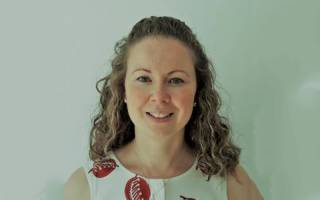Physiotherapy
For each Physiotherapy Specialty area, UCL offers two postgraduate pathways (MSc, PG Diploma and PG Certificate) for qualified physiotherapists who wish to extend their understanding of clinical, academic and research components of physiotherapy practice:
1) Advanced Physiotherapy: Suitable for physiotherapists with at least two years of relevant specialty clinical experience. This route involves students completing at least one three-week long clinical placement as a core module.
2) Physiotherapy Studies: Suitable for physiotherapists with less than two years of relevant specialty clinical experience, or for experienced practitioners who prefer not to undertake a clinical placement. Clinical placements are not offered as a module choice.
Cardiorespiratory programmes
Paediatrics programmes
Neurophysiotherapy programmes
Musculoskeletal Physiotherapy programmes
FAQs
- Can I study full time or part time?
Yes, both the ‘Advanced’ and ‘Studies’ MSc and PG Diploma routes can be taken full time (1 calendar year), part time (over 2 calendar years) or as a modular/flexible student (2-5 calendar years). PG Certificate students can take up to 2 years.
- How does being a modular/flexible student work?
If you are a modular/flexible student, you choose the number of modules you want/are able to complete each year and attend all the lectures/sessions for those modules. You also complete the assessment for each of those modules. The number of modules you complete is up to you. For example, if you are a modular/flexible student, you could complete two modules in your first year, three in your second and your final modules in your third year. You are not forced to complete a certain number of modules/credits each year.
- What is the difference between part time and modular/flexible?
Part time students are on a fixed payment schedule and need to complete half of their modules in their first year (90 credits) and half in their second year (90 credits). Modular flexible students can also complete in 2 years but the number of modules you take each year is more flexible and you pay for the number of modules you complete each year and not a set amount. Being modular/flexible gives more options if you then want, or need, to extend your studies.
- Can I take the modules in any order?
Within the full time route, modules have to be taken in the order in which they are timetabled for the year. Part-time and modular/flexible students can undertake modules in the order that best suits and interests them but, when choosing your options for each year, we would encourage discussion with the programme lead as there are suggested patterns that we feel would be optimal for student learning.
- How is the teaching organised and what hours does one need to attend?
Most of the modules that are hosted locally within the physiotherapy programmes run in short blocks over a number of consecutive days. Most modules run over six days, but a small number have fewer face to face days than this. The six days modules are often designed to run from Wednesday-Friday of one week and then Monday-Friday of the following week, but this is not the case for all modules with some being split into small blocks that take place over a few weeks.
For days of taught face to face contact, you should expect to be at UCL from 9.00-17.30. Teaching is usually scheduled between 9.00-17.00 but some sessions will start and finish a little bit earlier/later. The expectation is that students will attend all of these taught face to face days.
Within the constraints of the timetable and the availability of places, students can take optional modules that are offered by other programmes at UCL. Please be aware that these might be timetabled quite differently and may run on certain days of the week over several weeks of the term rather than in short blocks.
A small number of the modules within the physiotherapy programme have either a component of on-line self-paced content or are entirely on-line. How and when a student studies this content is more of their own choice.
- In addition to attending the teaching what extra requirements for work are there?
Most of the modules on the programme are worth 15 credits. This roughly equates to 150 student effort hours. Your face to face teaching contact and preparation for the modules will make up some of this, but the expectation is that students will study independently in preparation for the assessment. As a rough guide, in the weeks between the taught content finishing and the assessment submission, for each module that you are studying at that time, we would advise a minimum of between 12-15 hours of independent study per week.
For the non-taught modules (Clinical Placements or Research Project) the learning hours are slightly different:
• Clinical Placements for the Cardiorespiratory, Neuro and Paediatric programmes are usually five days per week for three weeks at your chosen institution with no extra lecture time at UCL. Clinical Placements for the musculoskeletal programme are usually offered as two day per week over 8-10 weeks (totaling 150 hours).
• The Research Project is mainly self-study but includes at least 20 hours’ worth of tutorials/ meetings with your dissertation supervisor during the year.- Can I study on the Advanced route?
The Advanced route with the clinical placement is only available to those students who could work safely on placement at a senior level. Although you will not be expected to be an expert, you must have enough knowledge and skills to work independently, at an advanced level, in the area. We would therefore normally expect a minimum of two years of work as a qualified physiotherapist within the specialist area of your chosen programme of study. This does not include internships.
Please note that the Studies route is just as academically robust as the Advanced route. One is not better than the other. The Studies route is available for both those who cannot undertake a placement and those who do not want to. This may be related to experience but may also relate to the availability or not of the three weeks of study leave needed for a clinical placement, or just a desire to do extra taught modules rather than gaining more clinical experience.
- Are there any scholarships or bursaries?
Please refer to the prospectus pages, which provide information on funding opportunities.
- You are based in the Great Ormond Street (GOS) Institute of Child Health – are the Cardiorespiratory, Neurophysiotherapy and Musculoskeletal programmes related just to children?
No, despite being based in the UCL GOS Institute of Child Health, the Cardiorespiratory, Neurophysiotherapy and MSK programmes are primarily focused on therapy for adults. Although students on the paediatric route can take modules from these programmes and vice versa, the emphasis within the teaching is on adults living with respective cardiorespiratory, neurological or musculoskeletal conditions.
- Can I transfer credits to UCL from another university?
Yes, this is often the case but each application is considered on its own merit. If you are in this position, please contact us and we can advise you further. Usually, credits can only be transferred at the application stage for learning prior to starting the UCL postgraduate programme.
- Can I upgrade my PG Certificate to a Diploma or MSc?
If you complete and pass the PG Certificate, you have the choice of upgrading to the PG Diploma or MSc and likewise, you can upgrade a PG Diploma to an MSc. This decision is made in conjunction with the teaching team.
For example, if you completed the 4 x 15 credit modules for the Certificate, you would only need to complete another 4 x 15 credit modules to get a PG Diploma. To gain an MSc, you would need to complete the 60 credit dissertation on top of the 8 taught modules.
Please be aware that there is a timeline of 2 years following completion of the initial award to enable this transfer to be made. Please also note that if you upgrade an award you have to surrender the previous award and will just hold the higher one.
Equally, if you start an MSc but then wish to exit with a PG Diploma or PG Certificate, you can do this so long as your module choices align with one of the exit programmes.
- Do I need to be a qualified physiotherapist to apply?
Yes, to study on the MSc, PG Diploma or PG Cert programmes, you need to be a qualified physiotherapist from an institution recognised by World Physiotherapy. We do not offer pre-registration MSc courses. Students can undertake modules for their own professional development (Short course or Taster) who are not physiotherapists, at the discretion of the module lead.
- Do you offer opportunities for adaptation to gain membership of the HCPC?
We do not offer either individual theoretical or practical opportunities specifically for adaptation. Usually this period of adaptation is undertaken in a clinical setting and not in an academic one.
- Do I need to have HCPC registration?
MSK Advanced programme: For this route you do need to have HCPC registration to do the Clinical Education module. For full-time students on the Advanced MSK Programme HCPC approval must be obtained by the end of term 1 at the latest. We strongly advise prospective students to apply for HCPC registration early, in advance of starting the Postgraduate Programme, as the registration process can take several months. Students on the Advanced MSK programme are also required to become members of the Chartered Society of Physiotherapists (CSP) for professional insurance.
All other programmes: You do not need to have HCPC registration to study on either the Advanced or Studies route for any of the other programmes. For the Advanced route, if you do not have HCPC registration, your options for placements will be limited to just those clinical areas in with you have a minimum of two years of recent relevant clinical experience (within 6 months of commencing the study programme at UCL).
- Do I need to have worked and have clinical experience to study on the Studies route?
Our expectation is that students will have a minimum of one year’s experience of working as a qualified physiotherapist to undertake the studies route. Ideally this will be paid work but can include some voluntary experience. Much of the teaching, learning and assessments is structured around clinical case scenarios and the more you can draw upon your experience of working with patients, the more relevant, beneficial and enjoyable you will find the learning to be.
 Close
Close



